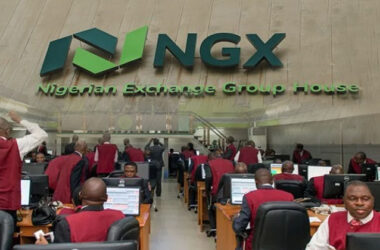As Nigeria marks another Independence Day, it is vital to reflect on the strides made toward economic stability and growth. One critical yet often overlooked component of this journey is the insurance industry. In a country characterized by rapid population growth, economic diversification, and numerous challenges, insurance emerges as a pivotal instrument in safeguarding assets, fostering investments, and ensuring resilience against uncertainties.
The Foundation of Economic Stability
Insurance serves as a financial safety net, providing protection against unforeseen events such as natural disasters, accidents, and health emergencies. For individuals and businesses alike, the assurance that losses can be mitigated encourages risk-taking and entrepreneurial endeavors. This is especially important in Nigeria, where the economy is transitioning from its traditional reliance on oil to a more diversified landscape that includes agriculture, technology, and manufacturing.
The growing awareness of the importance of insurance in managing risk is crucial. Many Nigerians still view insurance as a luxury rather than a necessity. This perception can hinder economic growth, as potential entrepreneurs and businesses may shy away from investments due to fears of loss. A strong insurance sector can alleviate these fears, creating an environment conducive to growth and innovation.
Insurance as a Catalyst for Investment
The availability of robust insurance products encourages both local and foreign investments. Investors are more likely to commit capital in a country where they know their assets are protected against risks. This protection extends to various sectors, including real estate, agriculture, and manufacturing, all of which are integral to Nigeria’s economic development.
For instance, the agricultural sector, which employs a significant portion of the population, stands to benefit immensely from agricultural insurance. Crop and livestock insurance products can protect farmers against losses due to natural disasters, pest infestations, or market fluctuations. By securing their investments, farmers are encouraged to adopt new technologies and practices, ultimately leading to increased productivity and food security.
Enhancing Resilience in the Face of Adversity
Nigeria is no stranger to challenges—be it economic downturns, health crises, or security issues. The COVID-19 pandemic highlighted the importance of insurance in enhancing resilience. Health insurance, in particular, became essential for individuals and families seeking access to quality medical care during the crisis.
Furthermore, businesses that had invested in comprehensive insurance coverage were better equipped to navigate the economic disruptions caused by the pandemic. By covering losses from business interruptions and providing liability protection, insurance enabled many enterprises to survive and adapt, reinforcing the argument for a robust insurance infrastructure as a cornerstone of economic resilience.
Regulatory Framework and Market Development
For Nigeria’s insurance sector to thrive, a strong regulatory framework is essential. The National Insurance Commission (NAICOM) has made significant strides in promoting transparency and efficiency within the industry. Regulatory reforms, such as the introduction of the Insurance Act 2003 and the recent move towards a risk-based capital framework, are vital in fostering confidence among consumers and investors.
Additionally, there is a need for increased financial literacy among Nigerians regarding insurance products. Public awareness campaigns can educate individuals and businesses about the benefits of insurance, encouraging them to adopt protective measures. As more people understand the value of insurance, market penetration will improve, leading to a more vibrant and competitive insurance landscape.
The Future of Insurance in Nigeria
As Nigeria aims for economic independence, the insurance industry must evolve to meet the changing needs of its population. Innovations in technology, such as insurtech solutions, are emerging as powerful tools to improve access and affordability. Digital platforms can simplify the purchasing process and make insurance products more accessible, especially for those in rural areas.
Furthermore, collaborations between insurance companies and other sectors, such as technology and agriculture, can lead to the development of tailored products that address specific risks. For instance, parametric insurance solutions can provide quick payouts for farmers affected by adverse weather conditions, reducing the time it takes to recover from losses.
On this Independence Day, as Nigeria reflects on its past and looks toward its future, it is crucial to recognize the role of insurance in securing economic independence. By fostering a culture of risk management, encouraging investments, and enhancing resilience against uncertainties, the insurance industry can be a powerful ally in Nigeria’s economic journey. As the nation strives for growth and prosperity, embracing the potential of insurance will not only protect assets but also lay the groundwork for a more secure and sustainable future. In doing so, Nigeria can truly celebrate its independence, not just as a moment in history but as a foundation for enduring economic success.







